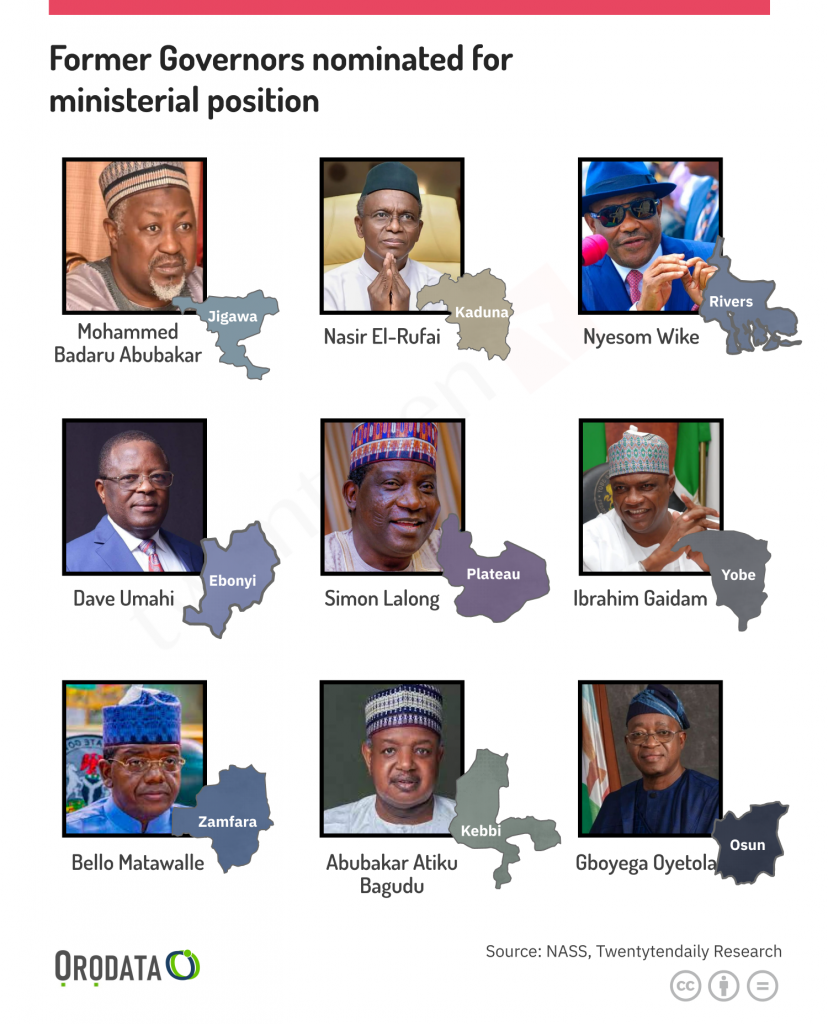President Bola Tinubu has appointed a total of 48 ministers into his cabinet, the largest since Nigeria’s transition to democracy in 1999. He broke a record set by his predecessor by appointing the highest number of ministers. Former President Muhammadu Buhari had 43 ministers in his second cabinet, also larger than his predecessors.
There are speculations that the cabinet is large merely because the President wants to compensate his loyalists who helped him win the presidential seat, and not necessarily for the country’s good. This is even as the country faces unprecedented economic downturn, and the government preaches austerity to poor citizens.
Although President Tinubu rode to power on the boastful claim that he had a knack for assembling excellent teams, many are surprised that his list is dominated by politicians who had performed below average in executive and legislative positions they held in the past. Specifically, the list contains nine former governors, namely: Adegboyega Oyetola (Osun), Atiku Bagudu (Kebbi), Bello Matawalle (Zamfara), Ibrahim Geidam (Yobe), Simon Lalong (Plateau), David Umahi (Ebonyi), Nyesom Wike (Rivers), Badaru Abubakar (Jigawa), and Nasir El-Rufai (Kaduna).

This is the highest number of former governors in Nigeria’s federal cabinet. Former President Jonathan had no former governor in his cabinet composed in 2011; he only added two former governors to the list in 2014 – a former Governor of Adamawa State, and a former governor of Kano, Malam Ibrahim Shekarau.
Former President Buhari had four former governors in his first cabinet – Chris Ngige (Anambra), Kayode Fayemi (Ekiti), Rotimi Amaechi (Rivers), Babatunde Fashola (Lagos), and Ogbonaya Onu (Abia); he had seven of them in his second cabinet in which he dropped Onu and Fayemi, and added Rauf Aregbesola (Osun), Niyi Adebayo (Ekiti), George Akume (Benue), Godswill Akpabio (Akwa Ibom), and Timipre Sylva (Bayelsa).
Nigerians are clamouring for technocrats as ministers rather than career politicians who are seldom committed to service, but more focused on politicking and winning elections.

